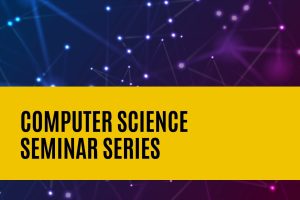
Lunch will be served at 12 p.m. The seminar will begin at 12:15 p.m.
Abstract
Modern AI and machine learning algorithms can deliver significant performance improvements for decision-making under uncertainty, where traditional, worst-case algorithms are often too conservative. These improvements can be potentially transformative for energy and sustainability applications, where rapid advances are needed to facilitate the energy transition and reduce carbon emissions. However, AI and ML lack worst-case guarantees, hindering their deployment to real-world problems where safety and reliability are critical. In this talk, Nico Christianson will discuss his recent work developing algorithms that bridge the gap between the good average-case performance of AI/ML and the worst-case guarantees of traditional algorithms. In particular, he will focus on the question of how to robustly leverage the recommendations of black-box AI “advice” for general online optimization problems, describing both algorithmic upper bounds and fundamental limits on the tradeoff between exploiting AI and maintaining worst-case performance. He will also highlight some recent steps toward leveraging uncertainty quantification for risk-aware decision-making in these settings, as well as experimental results on energy resource management in high-renewables power grids.
Speaker Biography
Nico Christianson is a final-year PhD candidate in computing and mathematical sciences at the California Institute of Technology, advised by Adam Wierman and Steven Low. Christianson’s research broadly focuses on decision-making under uncertainty, with a specific emphasis on developing new algorithms to enable the reliable and safe deployment of modern AI/ML tools to real-world sustainability challenges such as energy resource operation and carbon-aware computing. His work is supported by an NSF Graduate Research Fellowship and a PIMCO Data Science Fellowship. Christianson has interned at Microsoft Research (Redmond) and collaborated with industry partners including Beyond Limits and Amazon. Previously, he received an AB in applied mathematics from Harvard University.